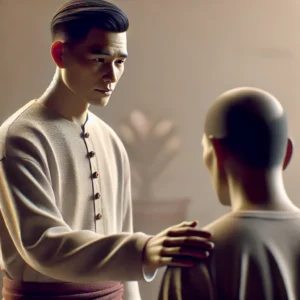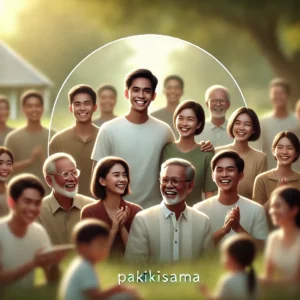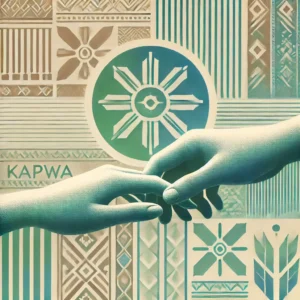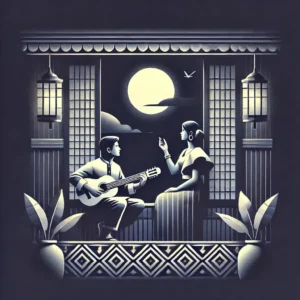
Pamilya: The Central Role of Family in Filipino Life
The concept of family, or “pamilya” in Filipino, stands as a cornerstone of Philippine society, deeply ingrained in the cultural fabric of the nation. This blog post explores the multifaceted aspects of family life in the Philippines, examining its historical roots, contemporary manifestations, and the challenges it faces in the modern era. By delving into […]
Read More
Paggalang: Respect for Elders and Authority
Paggalang, a fundamental concept in Filipino culture, embodies the deep-rooted tradition of showing respect for elders and authority figures. This cultural value is not merely a social convention but a cornerstone of Filipino society that shapes interpersonal relationships, family dynamics, and even professional interactions. Paggalang extends beyond simple politeness; it is a complex system of […]
Read More
Palabra de Honor: The Importance of Keeping One’s Word
In an era where trust seems increasingly scarce, the concept of “palabra de honor” stands as a beacon of integrity and reliability. This Spanish phrase, which translates to “word of honor” in English, encapsulates a profound commitment to truthfulness and the fulfillment of promises. The importance of keeping one’s word extends far beyond mere social […]
Read More
Delicadeza: The Filipino Value of Tact and Sensitivity
Delicadeza is a fundamental Filipino cultural value that embodies tact, sensitivity, and propriety in social interactions and personal conduct. This concept, deeply ingrained in Philippine society, plays a crucial role in shaping interpersonal relationships, business practices, and even political behavior. Delicadeza goes beyond mere politeness; it encompasses a nuanced understanding of social norms, respect for […]
Read More
Amor Propio: Filipino Self-Respect and Dignity
Amor propio, a Spanish term meaning “self-love” or “self-respect,” holds significant importance in Filipino culture and society. This concept encompasses a deep-rooted sense of personal dignity, honor, and pride that Filipinos hold dear. Amor propio is not merely an individual trait but a collective cultural value that shapes interpersonal relationships, social interactions, and national identity. […]
Read More
Hiya: Understanding the Filipino Sense of Shame and Propriety
In the rich tapestry of Filipino culture, one concept stands out as a fundamental pillar of social interaction and personal conduct: “hiya.” This deeply ingrained cultural value, often translated as “shame” or “propriety,” plays a crucial role in shaping Filipino behavior, relationships, and societal norms. Understanding hiya is essential for anyone seeking to comprehend the […]
Read More
Utang na Loob: Reciprocity and the Debt of Gratitude
Utang na loob, a Filipino cultural concept that translates to “debt of gratitude” or “inner debt,” is a fundamental principle that shapes social interactions and relationships in Philippine society. This deeply ingrained value system goes beyond mere reciprocity, encompassing a complex web of obligations, expectations, and moral responsibilities. In this comprehensive exploration, we will delve […]
Read More
Pakikisama: The Art of Getting Along in Filipino Society
Pakikisama, a fundamental concept in Filipino culture, plays a crucial role in shaping social interactions and relationships within Philippine society. This deeply ingrained value emphasizes harmony, unity, and the ability to get along with others in various social contexts. Understanding pakikisama is essential for both Filipinos and non-Filipinos alike, as it provides insights into the […]
Read More
Kapwa: The Filipino Concept of Shared Identity
In the bustling streets of Manila, amidst the cacophony of jeepneys and the aroma of sizzling street food, there’s an invisible thread that binds every Filipino together. It’s not just the shared love for adobo or the collective groan when traffic grinds to a halt. It’s something deeper, more profound – a concept that’s woven […]
Read More
Courtship in the Philippines: Traditional Practices and Modern Trends
The Philippines, an archipelago of over 7,000 islands, boasts a rich cultural heritage that has been shaped by centuries of indigenous traditions, colonial influences, and modern global trends. One aspect of Filipino culture that has undergone significant changes while still retaining its core values is the practice of courtship. This blog post delves into the […]
Read More